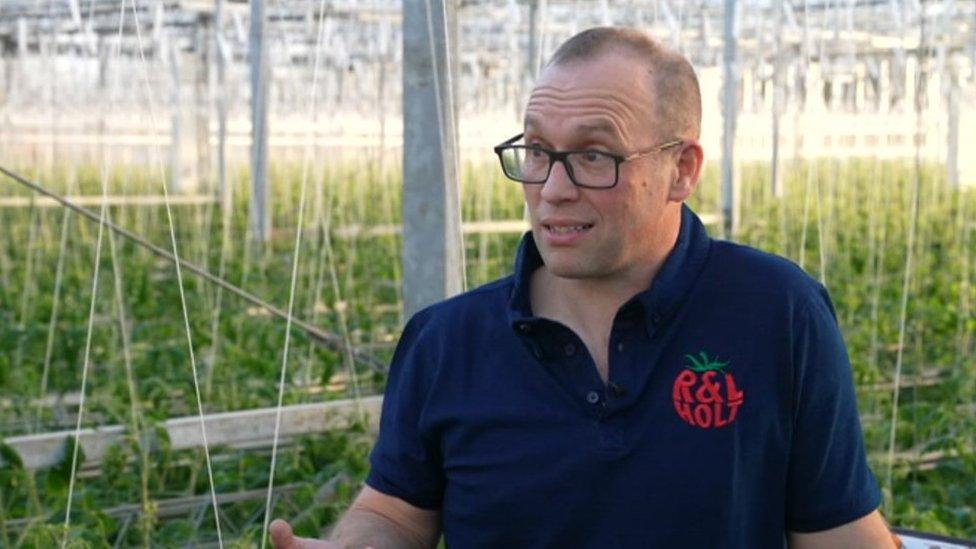Future uncertain but could be really rosy, farmers say
- Published
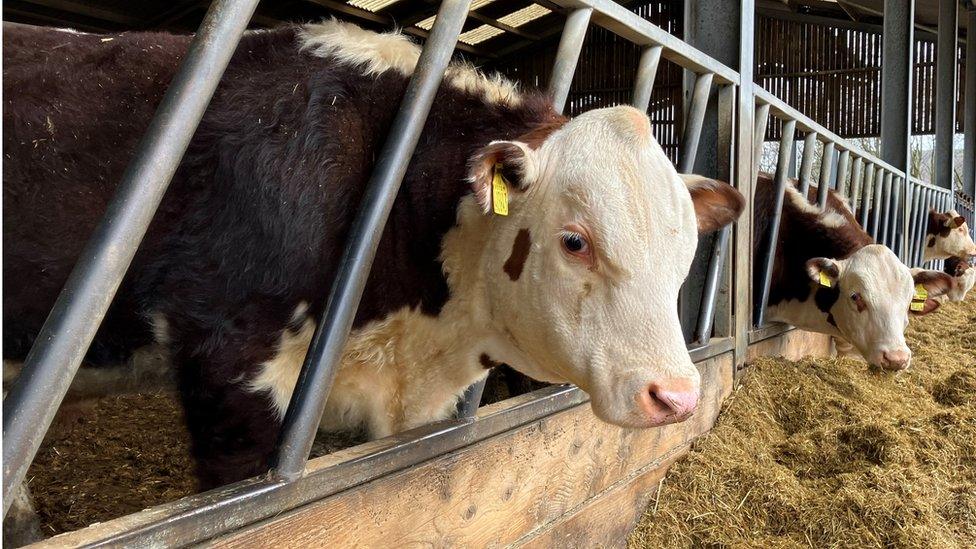
Nether Hall Farm needed to adapt in order to remain a viable businesss
Farmers dealing with extreme weather, rising costs and labour shortages have said they face an "uncertain" future as changes to subsidies are rolled out.
The post-Brexit farm payments scheme will finance environmental work and sustainable food production.
One farmer said money and guidance was needed, while another said the future could be "rosy" but would not be easy.
The government said the new scheme would help farmers to "produce food profitably and sustainably".
EU subsidies used to pay farmers for the amount of land they farmed but now there is a new emphasis on looking after the environment.
The new environmental land management schemes (Elms) will pay farmers public money for actions like managing crop pests without chemicals and working towards net zero.
The measures have been broadly welcomed by farming and environmental groups.
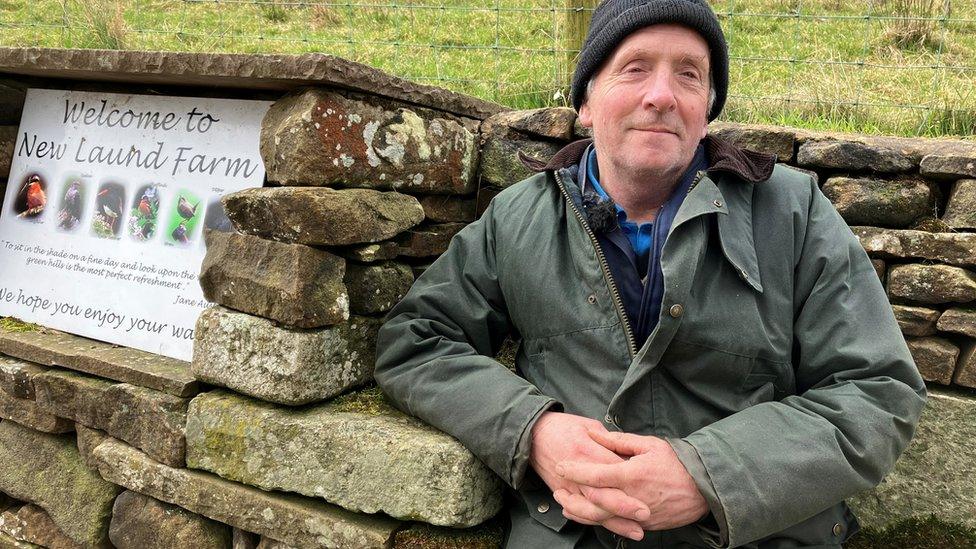
John Alpe said it was an "uncertain" time for the industry
Sheep farmer John Alpe, told BBC North West Tonight he had already taken advantage of some environmental schemes.
However, Mr Alpe, who owns New Laund Farm in Whitewell in the Ribble Valley, said the uncertainty on funding had led to him cutting down on the size of his flock.
He said one of his main challenges was rising feed costs.
He said he uses between 80 to 100 tonnes a year and the price had gone up by between £150 to £200 a tonne.
At the same time, the price being paid for lamb has dropped.
He said there was "no real understanding of how much it's going to be and what we've to do", so he planned to "sit quiet and just not spend very much money other than what we need to do".
Whatever happens though, he said he was certain of one thing.
"We won't have more, that's for sure. There will be less."
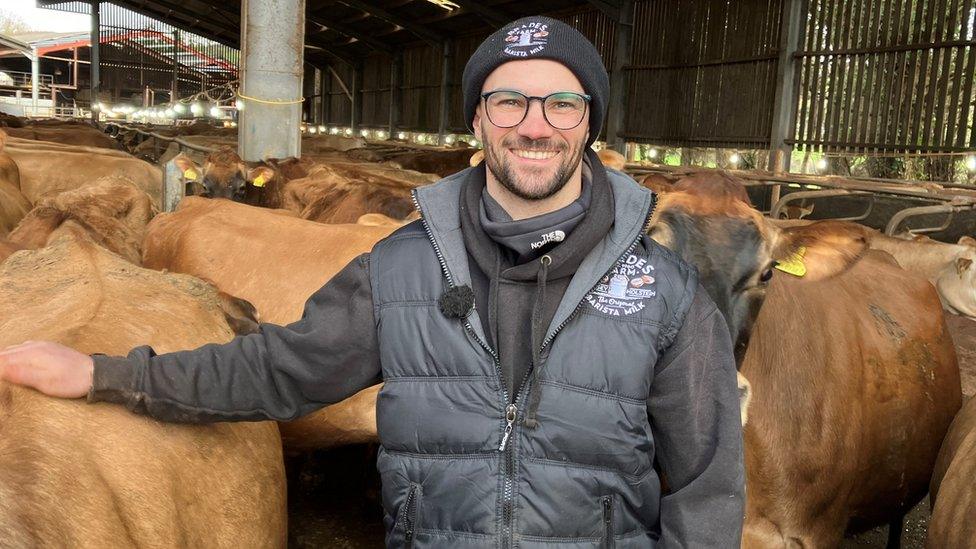
Mr Towers has called for more investment for improvements
Ed Towers, a dairy farmer based at Brades Farm Dairy in Farleton, Lancaster, said 10% of his business relies on government subsidies.
He said like many farmers, he welcomed a more environmentally friendly focus, but said the new scheme lacked detail, making it difficult to plan for the future.
"I would like to see greater investment opportunities for making the improvements that they want," he said.
"If you want us to have all electric tractors… we need to have the money and the guidance for it."
He said the volatility of milk prices had forced him to investigate a niche market, with his farm becoming the first in the UK to produce milk specifically designed for creating latte art.
He said it offered some protection from fluctuating milk prices, but he was also trying to make other changes to improve the farm's environmental credentials, which has increased costs.
He said half of the farm's carbon footprint was "the methane that comes off the cows and so we didn't want to be part of the problem of climate change, we wanted to be part of the solution".
A diet including a garlic and citrus supplement cut methane emissions by 30%, but it is expensive and has led Mr Towers to sell carbon credits to offset the cost.
'We're paying £90,000 for fertiliser as costs treble'
Some arable farmers like Lucy and Edd Houghton, from Lymm, Cheshire, have changed what they are planting to combat rising costs of fuel and fertiliser.
Their farm produce 300 tonnes of malting barley every year for a single brewery, which has given some financial security, but Mrs Houghton said the price for other crops fluctuated.
"We're getting very good prices for our wheat which is on the back of the Ukraine war," she said.
"At the moment though, the fertiliser costs have increased three times and the cost of fuel is also putting quite a strain on the farm."
In 2020, they spent £20,000 on fertiliser, but this year, that has risen to almost £90,000.
That means they have changed some of the crops on their 700-acre farm and planted oats, which need less fertiliser, while also finding other streams of income, such as spraying crops for 80 local farmers and supplying hay bales for weddings and private functions.
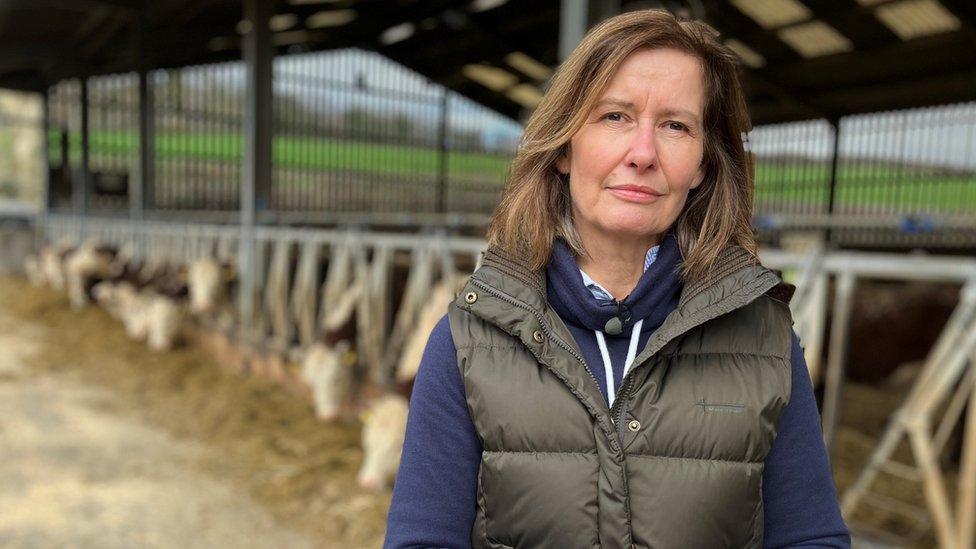
Ms Kelly said they had been "working our socks off" and "making no money"
Beef farmer Maggie Kelly has also made changes.
Her family now has one of England's biggest pedigree Hereford herds at Nether Hall Farm in the Lune Valley, despite originally having a completely different breed.
She said the rising cost of feed forced a change to "a more efficient cow", as they were working their socks off and "making no money".
"We used to have a big herd of Limousin's, and there were so many inputs... that we wanted a breed that we could manage on grass."
The National Farmers' Union said it was continuing to work with government to improve its new subsidy schemes, so farmers have all the details they need.
"If Elms is to be successful, we've always said that it needs to be simple, provide certainty and fairly reward farmers for taking part," the spokesman said.
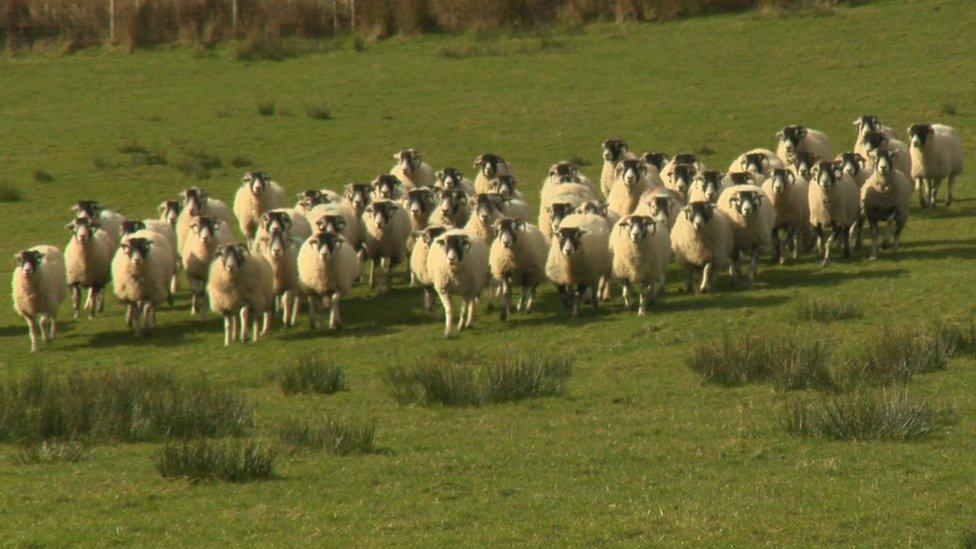
Mr Alpe said he needed to reduce the number of sheep at his farm due to rising costs
The Department for Environment Food & Rural Affairs said farming and nature "can and must go hand in hand".
"This is essential to support resilient food production," a representative said.
"Through our new Elms, we pay farmers to take actions that are good for the farm, good for food production and good for the environment."
They added that the government had "provided comprehensive details of the schemes which have something on offer for every type of farmer and give them the flexibility to choose what works best for them and their land".
"They will support farmers to produce food profitably and sustainably, including £600m in grants for equipment to help them become more productive."
Despite the challenges ahead, many farmers do remain hopeful for the future, Mr Alpe said.
He said he believed his farm would still be viable when it was time for his son to take over as farmers were "resilient" by nature.
Ms Kelly added the industry could still thrive if the government made British farming a priority.
"Farmers always step up and feed the population, so I think that the future is going to be really rosy," she said.
"I don't think it will be easy, but I think it will be good."
You can watch more about this story on BBC North West Tonight at 18:30 GMT on Friday 17 March.

Why not follow BBC North West on Facebook, external, Twitter, external and Instagram, external? You can also send story ideas to northwest.newsonline@bbc.co.uk, external
- Published13 March 2023
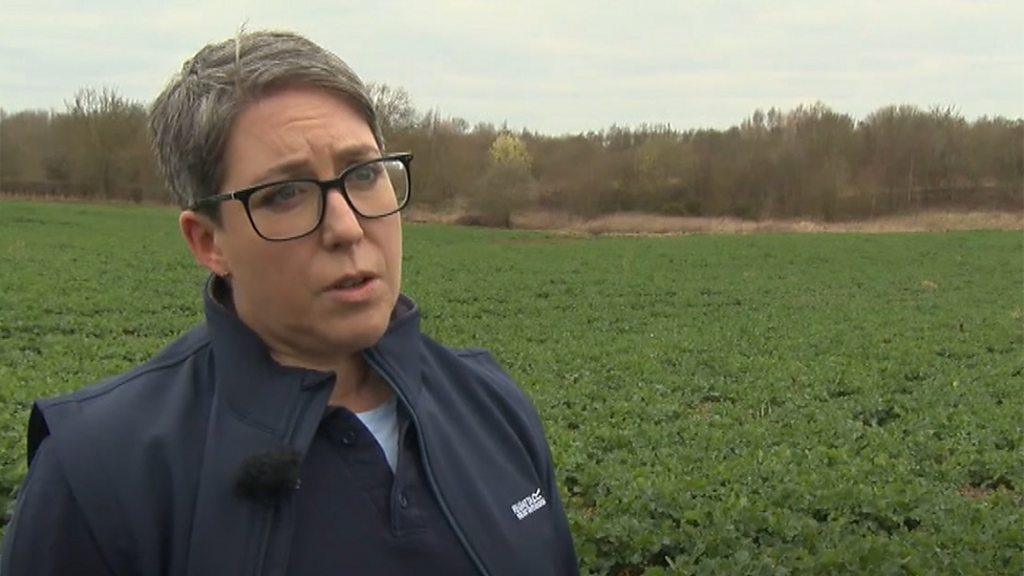
- Published7 March 2023
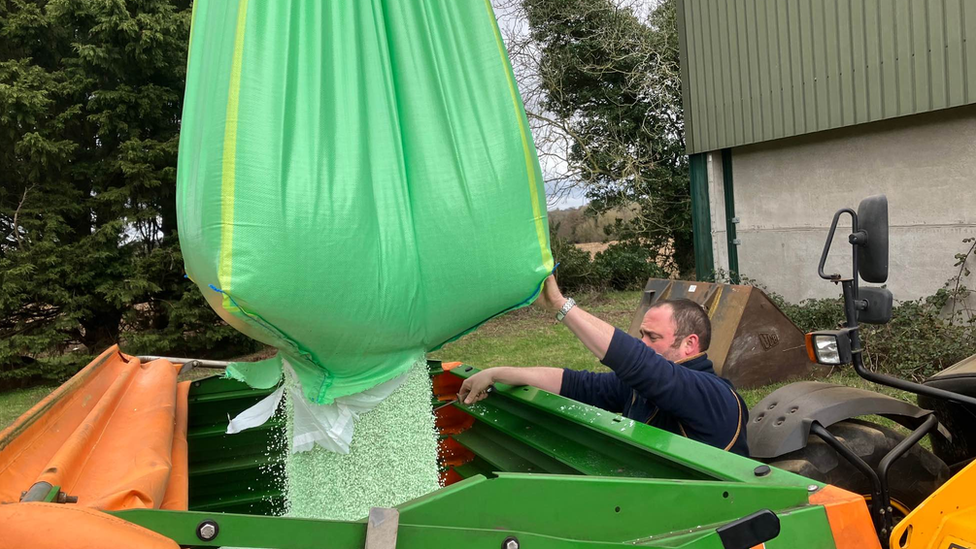
- Published26 January 2023
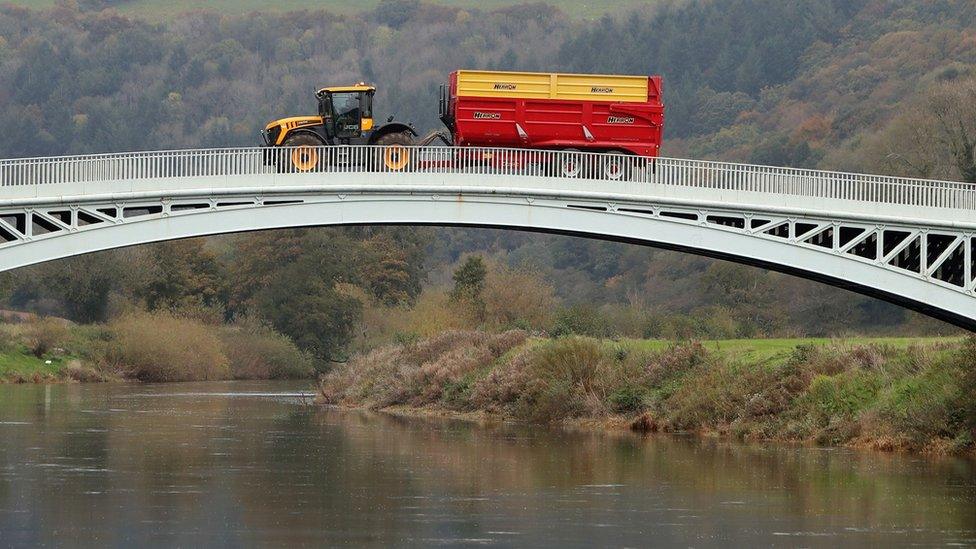
- Published16 January 2023
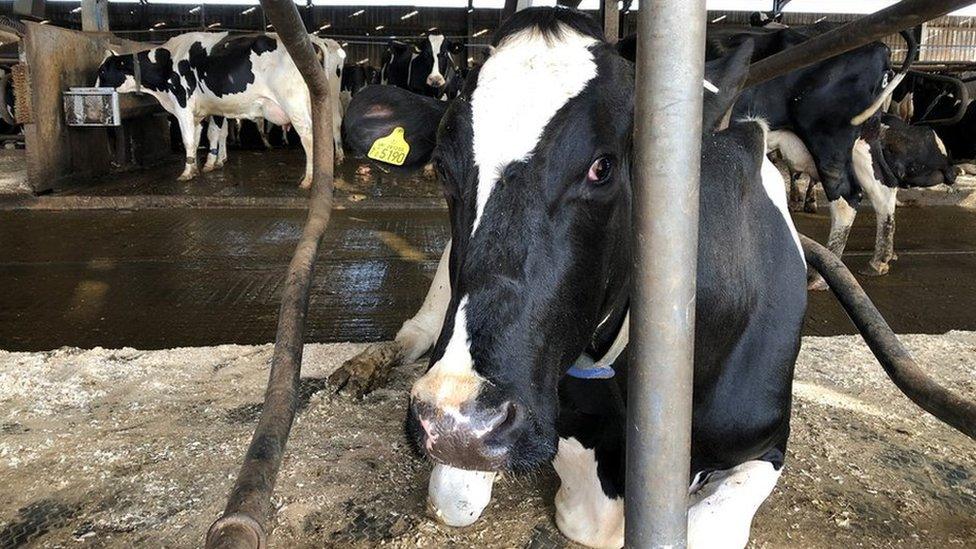
- Published4 January 2023
